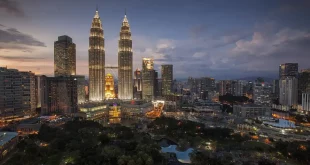How to become a mediator in Hong Kong ? The process of becoming a mediator in Hong Kong is a blend of acquiring formal qualifications, gaining practical experience, and developing a reputation. This detailed pathway involves a multifaceted approach to professional development.
Step 1: Acquiring Formal Qualifications
The journey begins with formal training. Aspiring mediators must complete a comprehensive mediation training course approved by the Hong Kong Mediation Accreditation Association Limited (HKMAAL). This course, which spans at least 50 hours, covers both the theoretical foundations of mediation and practical skills. Training programs typically focus on conflict resolution techniques, negotiation skills, and legal principles relevant to mediation. The importance of this foundational training cannot be overstated as it lays the groundwork for all subsequent mediation activities.
Step 2: Gaining Practical Experience
Practical experience is crucial for mediators in Hong Kong. Post-training, candidates must successfully mediate in simulated cases under the HKMAAL’s supervision. This step is designed to assess the candidate’s ability to apply their training in real-life scenarios. The assessment includes evaluating the mediator’s skills in managing the mediation process, facilitating communication between parties, and guiding parties towards a mutually acceptable resolution.
Step 3: Accreditation and Continuous Professional Development
After successful completion of training and assessments, candidates may apply for accreditation from HKMAAL. This step requires submitting evidence of their training and practical experience, along with the relevant fees. Once accredited, mediators must commit to continuous professional development to maintain their accreditation. This includes participating in further training, workshops, and staying updated with the latest developments in mediation practice and theory.
Also Read : How To Go Victoria Peak From Tsim Sha Tsui ?
Building a reputation for expertise and authoritativeness is vital in the Hong Kong mediation landscape, where the competition is stiff. Effective mediators often specialize in particular areas, such as family law, commercial disputes, or international arbitration. This specialization requires in-depth knowledge and understanding of the specific field, which enhances the mediator’s credibility and effectiveness. Additionally, experienced mediators in Hong Kong, including bilingual barristers, are highly sought after for their ability to handle complex and emotionally charged cases.
Step 5: Ethical Conduct and Trustworthiness
Adhering to high standards of ethical conduct and demonstrating trustworthiness are indispensable qualities for mediators in Hong Kong. This includes maintaining neutrality, ensuring confidentiality, and respecting the autonomy of the parties involved. Organizations like HKIAC provide guidelines and codes of conduct to help mediators uphold these standards. Trustworthiness also extends to the mediator’s ability to build rapport with the parties and manage the mediation process in a fair and impartial manner.
Step 6: Gaining Recognition and Advancing in the Field
As mediators gain experience and build their reputations, opportunities for advancement and recognition in the field increase. This can include being listed on panels of recognized mediation institutions, participating in high-profile cases, and contributing to the development of the mediation field through research, teaching, or writing.
In conclusion, becoming a mediator in Hong Kong is a process that demands a combination of formal education, practical experience, specialized knowledge, and a commitment to ethical practice. It requires dedication and ongoing professional development to achieve and maintain a high standard of mediation practice in a competitive and dynamic legal landscape. (Travel)
 Imaxshift.com : Insurance, Finance, Technology & Gadget Blog
Imaxshift.com : Insurance, Finance, Technology & Gadget Blog



